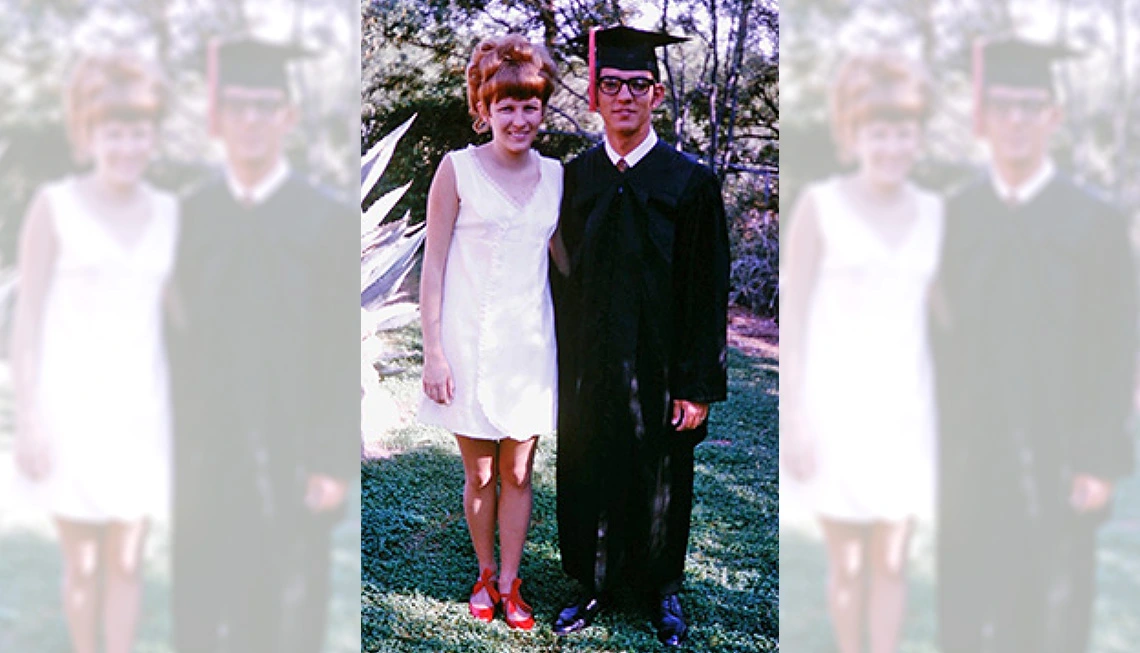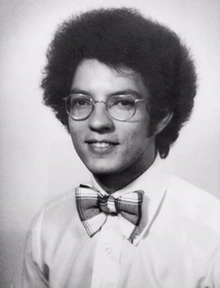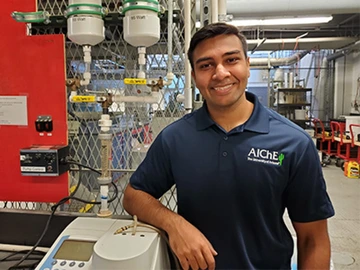Alumnus Donates $50K for Student Lab Workers

Scott Roberts, who received a bachelor’s degree in chemical engineering from the University of Arizona in 1969, is grateful for his undergraduate education and experience as a student worker in the chemical engineering unit operations lab.
Fifty years after graduating, after earning a doctorate from the University of Washington and enjoying a dynamic 35-year career with Royal Dutch Shell, Roberts is offering today’s students similar opportunities with a $50,000 gift to the Department of Chemical and Environmental Engineering.

The first beneficiary of the gift, CHEE junior Sahil Mallavarapu, joined the very same unit operations lab this fall.
“Working in the lab was so formative to my life and career that I want to pay it forward,” said Roberts.
Will Work for Food
Roberts held a potpourri of jobs as he worked his way through college in the late 1960s. He was a fry cook in a local restaurant, a “hasher” washing pots and pans in exchange for meals in a sorority house, and a mechanic in a nearby garage on the weekends.
(The garage gig was fateful: A buddy from the shop set Roberts up on a blind date with an art student named Catherine Bontempo. The couple fell in love, got married at the campus Newman Center just before Scott graduated, and have been together ever since.)
Learning of Roberts’ employment plight, professor Thomas Rehm hired him to work in the unit operations lab. There Roberts labored side by side with faculty members and graduate students, helping with research experiments and gaining practical skills.
Pipe-Fitting 101
One of Roberts’ favorite memories is working with a graduate student measuring kinetics in a cold plasma reactor. The experiment required a huge amount of cooling water and Roberts was charged with putting together the water piping.
“It was like pipe-fitting 101,” said Roberts, “but I got so much hands-on experience, and when I worked with the machine shop manager, I also learned about welding and electrical.”
His exposure to a variety of research projects helped inform his decision to pursue a PhD in chemical engineering, which he obtained from the University of Washington in 1974.
The Gift That Keeps On Giving
As Roberts was making plans to attend his milestone 50th reunion in Tucson in November, he felt moved to give back to the department that gave him so much
“I want to offer students the opportunity that I had,” said Roberts. “And with it being our 50th reunion anniversary, $50,000 seems like a nice round number.”
Roberts’ gift was inspired by CHEE’s inaugural crowdfunding campaign in spring 2019, the Grand Spectrophotometer Challenge. He learned of the need for equipment and maintenance in the undergraduate lab, but also realized the department needs people to carry out the work. His donation provides $10,000 per year for five years, specifically for student workers.
“What is so exciting about this gift,” said Greg Ogden, research professor and lab manager, “is that it gives us a sustained funding source for short-duration projects, and hands-on experience for students.”
A Practical Legacy
Sahil Mallavarapu, the first student to make use of the funds, is eager to follow in Roberts’ footsteps.

Seeking a STEM challenge and following his keen interest in hydrogen energy storage and reuse, Mallavarapu decided to major in chemical engineering last year. He is now gaining exactly the kind of practical experience in the unit operations lab that Roberts envisioned.
One of Mallavarapu’s first assignments from Ogden is to reconfigure an advanced oxidation experiment to reduce torque on the unit’s pump resulting from heavy student use. To accomplish the task, he is teaching himself AutoCAD and SolidWorks, computer-aided design software.
“Dr. Ogden basically told me to come up with an initial design, we’ll refine it, and then I get to help build the system,” he said.
Both Roberts and Mallavarapu appreciate the benefits of technical lab work.
“During my career at Shell I always had excellent rapport with the technicians who carry out the plans of engineers because I know firsthand how hard their jobs are,” said Roberts.
Mallavarapu said he is learning to visualize the detailed steps you need to take to fix a technical problem.
Looking Back and Moving Forward
As Roberts reflects on his undergraduate days, enjoys retirement and supports the next generation of engineers, Mallavarapu isn’t yet sure what he wants to do after graduation next year.
He has landed a summer internship with Air Liquide, a national company that works on hydrogen energy storage.
“I have a choice between the technology and management tracks, and technology is the way I want to go,” said Mallavarapu.
Roberts and Mallavarapu look forward to meeting in person at a department gathering in early 2020. They’ll have plentiful stories to share and notes to compare from their adventures working in the lab.
